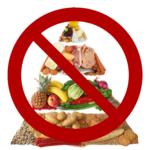
Why the Food Pyramid is A Lie
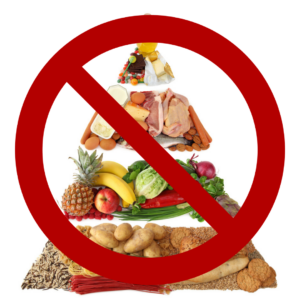
ARTICLE AT A GLANCE:
-The traditional food pyramid from the 1990s into the early 2000s is inaccurate and makes suggestions that don’t help those with immunity problems (including individuals with autism)
-A more helpful and scientifically-backed way of eating is to follow a modified version of the paleo diet that emphasizes whole, naturally occurring foods while avoiding sugar & pesticides
Do you remember the food pyramid? If you grew up in the 1990s-the early 2000s, you likely have seen this USDA-backed eating guide on posters at school, in health class, and even in textbooks. The bottom of the pyramid is what you’re meant to eat most of (6-8 daily servings of grain, bread, or pasta), while moving up the pyramid is what you’re meant to eat least of (fats, oils, butter).
The problem with the food pyramid that was once so heavily emphasized is that we now have science showing it is not the best way to eat for our bodies to function at their best. Unfortunately, things like processed wheat (bread, cereal, and pasta) and dairy can lead to problems within the gut, while healthy lipids (which are at the top of the pyramid) are crucial for brain health. Consuming the wrong foods too much and the right foods too little can cause even more problems for individuals with low immunity. And while the updated “MyPlate” version of the food pyramid is a definite improvement, it is still not enough to give a realistic representation of what we should eat to be healthy and strong.
So even though the food pyramid is no longer taught in schools, why is it that in many ways it still so ingrained in the public conscience? The reason is because it takes a long time to change public opinion, and unfortunately, the medical community is sometimes lagging when it comes to following and advocating for changes based on newer scientific data.
A Better Way To Eating
The best way to move past the notion of the traditional food pyramid is to follow and advocate for a better model. Here at All-Star Nutrition, we teach the 2R Protocol, which is removing harmful foods and toxins, while working to repair the body by adding supplements and the right foods. The food guide we suggest is more similar to the paleo diet, which in essence are foods in their natural form. This includes lean meats, vegetables, fruits, eggs, nuts, and fish while avoiding things like sugar, dairy, pesticides, and packaged foods. As a general guideline, it’s best to avoid foods that are made in a factory (think crackers, cookies, pastries, etc).
It’s not easy to change our habits, and it can be ever more difficult to change our mindsets, but it is possible to overcome the mentality of the traditional food pyramid. By instead adopting a lifestyle of foods and supplements that nourish the body and the brain, we can live healthier and help our children reduce and even eliminate many of the symptoms of autism to reach their full potential.
References
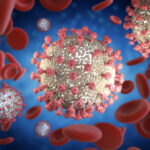
3 Major Shifts In Response to COVID-19
People have been asking how I’m navigating this COVID-19 crisis as the CEO of a family-run business.
We wanted to share 3 big shifts we’ve made, as a company, in response to COVID-19.
It’s important for our loyal customers (and future customers) to have as much certainty as they can, in the brands they follow; especially during these uncertain times. Safety and quality have always been our #1 priority at All-Star Nutrition, and we’ve gladly gone that extra mile to make sure we’re putting the highest quality product in the hands of our customers. From testing each individual ingredient for safety and strength in our FDA, cGMP-certified facility (proudly located right here in the USA) to processing sample batches that get tested a 2nd time before we officially process a bottle, we even go as far as randomly selecting multiple sets of bottles from each batch to have them sent to a 3rd party lab where they get tested yet again for 1) Safety, 2) Strength, 3) Composition, and 4) Purity. After everything passes with an A+ grade, then and only then do we ship the bottles to our warehouse in Idaho for fulfillment.
But times have changed. And with it, we as a team, feel another “mile” is required for us to take, to continue to serve our customers at the highest level. So, we tightened our thinking-caps, put our wifi to the test, and piled into a crowded virtual conference room where we made 3 Big Shifts:
1. We’ve Stocked Up!
It was vital for us to make sure our customers never ran out of Bio-Heal.
We worried that workers at our certified FDA, cGMP facility may not be able to go into work.
So, we ordered twice as much inventory to keep our shelves stocked, just in case.
(And will continue to stay months ahead with inventory)
2. We Can Ship Bio-Heal Safely and Directly To You
We wanted to make sure you could always get Bio-Heal shipped straight to your door.
Plus, we wanted to take maximum precautions with the process and handling of your orders for safety.
So, we moved our distribution to a medical-grade fulfillment center in Idaho where they have some of the highest safety standards in the country.
And since they ship vital medical supplies across the globe, they are deemed a “Life-Essential” Business by the Government.
In other words, if anyone can ship a package, it’s always going to be us.
3. We’re Taking Excellent Care of Our Team Members
We wanted all of our employees and their families to be taken care of during this crisis.
There’s already enough stress weighing families down right now – we didn’t want job uncertainty adding to it.
So, we made a few adjustments and found a way to keep every team member at All-Star, employed with 100% of their salary.
—–
I don’t share this with you for any “credit” or kudos
Besides, if anyone deserves credit, it’s my team; for working so hard and pushing their mental bandwidth to the limit for our customers.
And it’s you; for continuing to support All-Star Nutrition – and continuing to optimize your family’s health with products like Bio-Heal in the midst of these difficult times we find ourselves in.
So with all that said:
From me and the entire All-Star team, Thank You.
We know the roads in life are not always smooth.But we appreciate you riding “shotgun” with us 😉
Best Wishes And Highest Regards,
Marty Orefice
Founder of All-Star Nutrition
What You Need To Know About Low-Inflammation Foods
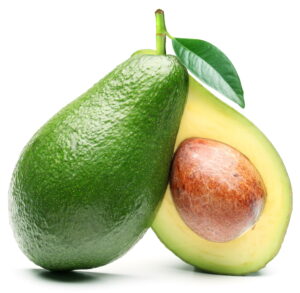
Article At A Glance:
•Inflammation is the body’s natural process to fight against infection; chronic inflammation can lead to disease
•Healthy fats, probiotics, and prebiotics can all help fight inflammation and promote healing
Here at All-Star Nutrition, we talk a lot about supporting healthy gut function and easing inflammation in the body to help manage and reduce the symptoms of autism. But what exactly do we mean by inflammation, and why is it important to help lessen it?
Inflammation is when the body goes into defense mode by increasing the production of white blood cells and preparing to fight disease. While this is a necessary function, chronic inflammation is what we are trying to avoid. And the reason we want to stay away from sugars, pesticides, dairy products, and other toxins is because they are what the body doesn’t like. In other words, your system is trying to fight off the very foods you are feeding it.
The 2R Protocol is what we use to promote healing and wellness for our children. It refers to 1) removing unhealthy foods, and 2) repairing the body with foods and supplements. So let’s dig a little deeper into the kinds of foods that are low-inflammatory:
Healthy Fats
For too long, fats have gotten a bad name. Did you know that the sugar industry once paid scientists to lobby against fat and make it seem like the enemy? This led to the low-fat/ no-fat craze that in the end made us sicker, fatter, and dumber. Sugar is the real enemy here, while healthy fats are tremendously important for healthy brain function. Foods like avocado, coconut oil, fish, and grass-fed butter are all examples of healthy (and delicious!) fats to include in your family’s diets.
Probiotics
Probiotics are another example of low-inflammatory foods that promote gut health. These are about reintroducing good bacteria. While the term often makes people think of supplements, probiotics can also be found in foods. Kim chi, sauerkraut, and kombucha are ways to consume probiotics in our diets. We do suggest staying away from yogurt as a source of probiotics, as yogurts are usually filled with sugar and artificial sweeteners and are also dairy or soy-based.
Fiber & Prebiotics
Prebiotics are basically carbohydrates that support the growth of good bacteria in the gut that help to balance out and counteract the bad bacteria. Examples of these foods include sweet potatoes, carrots, asparagus, and butternut squash. And as always, opt for organic produce whenever possible to avoid pesticides.
*This website is provided for informational purposes only and is not intended as a substitute for the advice provided by a healthcare professional.
References
Artificial Sweeteners: The Good & The Bad of Sugar Alternatives
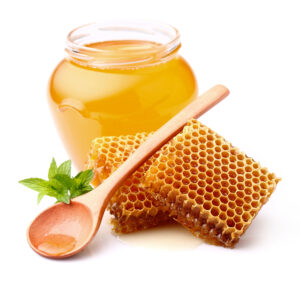
Article At a Glance:
- Sugar is one of the worst food additives and creates a variety of health concerns
- Alternatives to sugar exist; some are just as harmful as sugar itself, while some are safer substitutes to improve taste and enhance sweetness
Sugar is one of the worst things we can put in our bodies, as it can wreak havoc on the gut and lead to a host of other health problems. And as the negative effects of sugar have begun to be talked about more in recent years, we’ve seen a rise in alternatives as food manufacturers look for ways to create a sweet taste without the harmful side effects of sugar itself.
As we’ve mentioned before, closely reading food labels is crucial to understand what you’re putting in your body. But when it comes to sugar alternatives, it’s easy to get confused, as there are so many different names out there. Here’s a quick breakdown of sugar alternatives:
First, let’s start with the bad ones:
Sucralose
Sucralose is better known as Splenda, the artificial sweetener often used in coffee. This is one to avoid, as it can disrupt the microbiome and decrease the good gut bacteria by as much as 50%.
Saccharin
Saccharin is what is found in Sweet ‘N Low and was actually once a banned food additive. Unfortunately, it’s back on the market even though it’s been linked to cancer.
Aspartame
Aspartame truly is the worst of the worst when it comes to sweeteners, and yet it is found in over 6,000 food products worldwide! This dangerous additive has been linked to cancer, alzheimers, depression, and a host of other problems. Just like MSG, it’s an excitotoxin, meaning it can cause harm to our children’s brains. Stay away from aspartame!
Neotame
Neotame is nearly identical to aspartame and has all the same negative effects (often, these food manufacturers will slightly tweak the ingredients and rebrand with a name change but they are selling the same old toxins).
Thankfully, there are some choices on the market that do not have the detrimental effects of sugar or any of the aforementioned alternatives. Here are some sugar alcohols to use when you need to sweeten up your food a bit: xylitol, erythritol, stevia, monk fruit extract, and raw honey are all things you can use to enhance taste without all the health problems.
*This website is provided for informational purposes only and is not intended as a substitute for the advice provided by a healthcare professional.
References
1. Remove These 4 Unhealthy Foods
2. What’s An Unhealthy Gut?
3. How To Read Nutrition Labels
4. Artificial Sweeteners May Change Our Gut Bacteria In Dangerous Ways
5. Are Artificial Sweeteners Really That Bad For You?
6. What is MSG (and why is it so horrifying)?
7 Ways To Strengthen Your Immune System

Article At A Glance:
- COVID-19 is not only taking a toll on us globally and economically; it’s also taxing our immune systems with stress and anxiety
- In addition to basic precautions to slow the spread, here are 7 actionable ways to increase immunity
Fears about the Coronavirus are running rampant, and as we experience a global pandemic in response to this crisis, it’s understandable to feel overwhelmed. Worry about the virus can wreak havoc on our mental health, which can then simultaneously weaken our bodies, so it’s all too easy to spiral into a vicious cycle of negativity. What’s especially alarming is that there is no playbook for what we are experiencing: definitive answers are hard to come by, and it’s often hard to discern actual science from myths and rumors swirling in the media. And while there are many things out of our control, this is as good as a time as any to take inventory in our personal health, and our immune systems in particular.
Whether or not you or your loved ones are ever exposed to COVID-19 (and we pray that you are not), there are actionable steps you can take today to boost your own health. And while the news media touts common guidelines to slow the spread (including social distancing, vigorously washing our hands, and the temporary closure of schools, libraries, and certain businesses), what’s perhaps not being talked about quite as much are overall ways to strengthen our bodies to both prevent certain diseases and stave off any illnesses we do contract. Research on COVID-19 consistently shows that those who succumb to the virus were immunocompromised and/ or had other existing medical conditions, With that in mind, here are 7 ways to improve your immune system
-
Start & Maintain A Healthy Nutrition Plan
Food is perhaps the single biggest factor for our health that we can control, and the mainstream medical community is only beginning to realize the way that nutrition (or lack thereof) affects us physically and mentally. Having a consistent way of life that supports healthy eating can do wonders for our long-term immunity. It’s not a quick fix; it can be a total life change in feeding our bodies what they need to thrive.
-
Avoid Certain Foods
A key part of a healthy nutrition plan is cutting out certain foods and products that don’t strengthen our bodies and can actually hinder us. Packaged foods and pesticides can wreak havoc on our immune systems. Additionally, staying away from sugar, wheat, and dairy can help strengthen our bodies.
-
Improve Your Gut Health
Did you know that 70% of your immunity is in your gut? That’s a LOT! By removing the bad foods as well as enriching your diet with the right foods, you’ll improve the balance in your gut so that the healthy bacteria can flourish and keep things in order. Read here for more about why gut health matters.
-
Get Better Quality Sleep
With the 24/7 news cycle, it’s easy to keep scrolling our phones and never shut off our screens. But one of the best things you can do for your health and your family is to get quality shut-eye. That means things like no phones in bed, giving yourself an hour of no-screen time before turning in for the night, and keeping your bedroom dark and fairly cool to facilitate good sleep hygiene.
-
Be Physically Active & Soak Up Sunshine
Your local gym is likely closed for the time, but getting outside to go for a run or even a walk around the neighborhood with your family helps with immunity. Also, there are plenty of exercises that don’t require equipment (push-ups, jump squats, sit-ups, air squats, burpees, etc), so don’t use the quarantine as an excuse. Kids especially need the Vitamin D from the sun, so get outside together!
-
Take Immunity-Supporting Health Supplements
Nutrition is our first line of defense in keeping our bodies strong, but the truth is that even the most healthy of eaters are likely missing something with food alone. Quality supplements can help you fill in the gaps where your diet may be lacking, and probiotics in particular are the most effective in improving the gut. In addition to our Bio-Heal supplement (which currently has over 600 5 star reviews), other powerful supplements to improve immunity are Monolaurin and Virattack. As someone who has experienced multiple immune disorders and used these products myself, I can personally attest that they help build resiliency and strong immunity.
-
Reduce Stress
This one may seem impossible in a time of global fear. However, we can do our best, as stress hormones working overtime can tax our bodies and weaken our immunity. Children in particular do not have the emotional coping mechanisms to manage stress well, so be sure to help calm their fears and limit their exposure to the news. Help them keep things in perspective and you will help their immune system.
Final Thoughts
- COVID-19 is bringing a lot of anxiety and fear to our world, and while we cannot magically “fix” anything, we can take proactive steps to care for ourselves and our families.
- One of the best things we can is to boost our own immunity, which serves as the body’s first line of defense in the case of a disease.
- Simple steps (like getting quality sleep, reducing stress, and focusing on optimal nutrition & supplementation) can help our bodies be healthy and stave off illness.
*This website is provided for informational purposes only and is not intended as a substitute for the advice provided by a healthcare professional.
References
- https://www.cdc.gov/coronavirus/2019-ncov/daily-life-coping/managing-stress-anxiety.html
- https://emergency.cdc.gov/han/2020/han00429.asp
- https://edu.allstarnutrition.com/remove-these-4-unhealthy-foods-2r-protocol-system-part-1/
- https://edu.allstarnutrition.com/wp-admin/edit.php?s=gut+brain&post_status=all&post_type=post&action=-1&m=0&cat=0&seo_filter&readability_filter&paged=1&action2=-1
- https://www.amazon.com/gp/product/B010BIHNO6/ref=as_li_ss_tl?ie=UTF8&psc=1&linkCode=sl1&tag=ushoas-20&linkId=eced4579cd35ca18064d89a0d6449162&language=en_US
- https://edu.allstarnutrition.com/bio-heal-faq/
- https://www.amazon.com/gp/product/B000155S2Y/ref=as_li_ss_tl?ie=UTF8&th=1&linkCode=sl1&tag=ushoas-20&linkId=215d98037ece8d9b75a5d9c6cb450fec&language=en_US
Parent Success Story: Shannon
Article At a Glance:
- Shannon is a member of the All-Star Nutrition community who shares with us her experience advocating for her son with severe aggressive autism.

I always love to share the victories of parents in our community who reach breakthroughs with their children. A few months ago, we shared about a mom named Nicole. Today, here is the experience of Shannon and her son:
Shannon’s Story
Shannon was feeling hopeless. Her 2-year-old son Carter had severe aggressive autism, and nothing seemed to be working. She had taken him to see specialists all across the country, and still the doctors couldn’t give her clear answers or solutions. Carter has food allergies, malabsorption of nutrients, digestive problems, and overall was exhibiting failure to thrive. He was nonverbal and had begun to regress socially and developmentally. Shannon had started to think that her son may always have a difficult life.
Hope For Improvement
Although she was discouraged, Shannon decided to exhaust all her resources and try every last strategy to help Carter. She saw an advertisement for All-Star Nutrition’s Bio-Heal product and was initially skeptical. After all, so many things had failed her before, so why would this be any different? After repeatedly seeing the ad, Shannon decided to order Bio-Heal just to prove it false.
Her experience with Bio-Heal is similar to many we’ve heard before: it took a few weeks, but after diligent use, her Carter’s behavior began to change. His constipation issues and reflux went away. Socially, he was more interactive and had prolonged attention. And he began to use simple words! Shannon was blown away!
Her Advice
Shannon understands the desperation families feel when raising a child with autism. She also understands the cynicism of products that promise to deliver. However, she wants others struggling to give Bio-Heal a try. She recommends this product to help with digestive concerns, social and development gaps, and other issues related to autism.
To learn more about how to use the Bio-Heal Probiotic Powder for best results, click here
Purchase Bio-Heal here
*This website is provided for informational purposes only and is not intended as a substitute for the advice provided by a healthcare professional.
References:
Parent Success Story: Nicole
Bio-Heal FAQ
What You Need To Know About the Herx Reaction
Getting to the Root of Behavior Problems
Research Center

Thank you for your interest in our research center.
There are a plethora of studies that all show the same thing.
Here’s a few to get you started.
If you still want more, you can search Pubmed (https://www.ncbi.nlm.nih.gov/pubmed) and continue your research.
General Gut-Brain Connection:
https://www.hopkinsmedicine.org/health/wellness-and-prevention/the-brain-gut-connection
https://www.health.harvard.edu/diseases-and-conditions/the-gut-brain-connection
Gut Health & Autism:
The Gut Microbiota and Autism Spectrum Disorders
https://www.ncbi.nlm.nih.gov/pmc/articles/PMC5408485/
Microbiota Transfer Therapy alters gut ecosystem and improves gastrointestinal and autism symptoms: an open-label study
https://www.ncbi.nlm.nih.gov/pmc/articles/PMC5264285/
Can probiotics benefit children with autism spectrum disorders?
https://www.ncbi.nlm.nih.gov/pmc/articles/PMC5155168/
Autism and nutrition: the role of the gut–brain axis
https://www.cambridge.org/core/journals/nutrition-research-reviews/article/autism-and-nutrition-the-role-of-the-gutbrain-axis/76735D9541EB3D2A86099583F42B39CF
Comprehensive Nutritional and Dietary Intervention for Autism Spectrum Disorder-A Randomized, Controlled 12-Month Trial
https://www.ncbi.nlm.nih.gov/pubmed/29562612
(Full Text –
http://www.mdpi.com/2072-6643/10/3/369)
A modified ketogenic gluten-free diet with MCT improves behavior in children with autism spectrum disorder
https://www.sciencedirect.com/science/article/abs/pii/S0031938418300507
Ketogenic diet versus gluten free casein free diet in autistic children: a case-control study.
https://www.ncbi.nlm.nih.gov/pubmed/28808808
Gut microbe study shows promise as a potential treatment for autism
https://asunow.asu.edu/20170123-discoveries-asu-gut-microbe-study-shows-promise-potential-treatment-autism
The strong correlation of gastrointestinal symptoms with autism severity indicates that children with more severe autism are likely to have more severe gastrointestinal symptoms and vice versa.
https://www.ncbi.nlm.nih.gov/pubmed/21410934
Microbial Reconstitution Reverses Maternal Diet-Induced Social and Synaptic Deficits in Offspring (L. reuteri treatment restores oxytocin levels, VTA plasticity and social behaviors)
https://www.cell.com/cell/fulltext/S0092-8674(16)30730-9
Autism Speaks – Spotlight on the Gut Bacteria-Brain Connection in Autism
https://www.autismspeaks.org/science/science-news/spotlight-gut-bacteria-brain-connection-autism
The Gut Microbiome: A New Frontier in Autism Research
https://www.ncbi.nlm.nih.gov/pmc/articles/PMC3564498/
Relationships between diet-related changes in the gut microbiome and cognitive flexibility
https://www.ncbi.nlm.nih.gov/pubmed/25982560
Probiotics & Autism:
https://www.ncbi.nlm.nih.gov/pubmed/28686541
The Perturbance of Microbiome and Gut-Brain Axis in Autism Spectrum Disorders
http://www.mdpi.com/1422-0067/19/8/2251/htm
A prebiotic intervention study in children with autism spectrum disorders (ASDs).
https://www.ncbi.nlm.nih.gov/pubmed/30071894
Dietary interventions for autism spectrum disorder: New perspectives from the gut-brain axis
https://www.sciencedirect.com/science/article/abs/pii/S0031938418305080
Dysbiosis of the microbiome and probiotic treatment in a genetic model of autism spectrum disorders
https://www.sciencedirect.com/science/article/pii/S0889159118301880?via%3Dihub
Gut microbiota in autism and mood disorders
https://www.ncbi.nlm.nih.gov/pubmed/26755882
Gastrointestinal microbiota in children with autism in Slovakia
https://www.ncbi.nlm.nih.gov/pubmed/25446201
Digestive Enzymes
https://www.ncbi.nlm.nih.gov/pubmed/26243847
Your Child’s Attention Span, Mood, And Classroom Behavior May Be The Result Of An Unhealthy Gut.
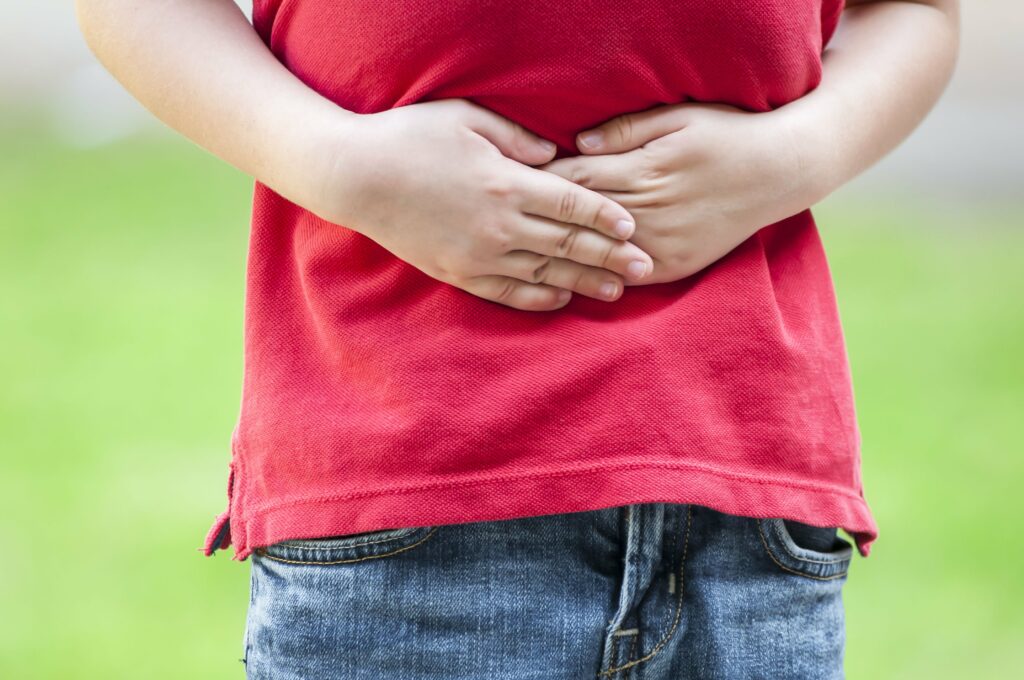
Article At a Glance:
• Harvard And Johns Hopkins have done extensive research on the connection between the gut and the brain — the results reveal a strong link between the gut and behavior, mood, attention, speech, sociability and motor skills.
• Gut health is crucial to your child’s overall immune system and ability to thrive.
• Visiting a Doctors office is NOT necessary to find out if your child has an unhealthy gut. There are 7 ways parents can evaluate their child’s gut from the comfort of their own home (all of which are outlined in this article).
Whether your child is big or small, in preschool or a teenager, it’s important to be aware of the health of their gut. After all, as the research shows, their ability to develop and thrive at their full potential depends on it.
It’s also important to know that what may seem common and “normal” for a child to be experiencing – can, in fact, be symptoms of an unhealthy gut.
Especially for children with autism.
I outline what those symptoms are and how you can repair your child’s gut, below.
1. Bowel Movements
The frequency and formation of your child’s stool can say a lot about their gut health. They should be having a bowel movement once a day that is solid but not too hard to pass. If they often have diarrhea or become constipated, this is a sign that there may be an imbalance in the gut.
2. Gas
Passing gas is normal, but flatulence with an unbearably foul smell indicates that something in the GI tract is off. If your child has frequent, stinky gas, it’s time to further investigate what is going on in the gut as it could be a sign of an unhealthy ratio of good vs bad bacteria in the gut.
3. Belly
Your child’s belly should be relatively flat; a belly that is distended or protruding is a tell-tale symptom of digestive distress.
Sometimes kids have ‘jelly bellies’ which may indicate excess insulin and potential insulin resistance as too much insulin can cause us to store fat in our bellies. But bellies can also be bloated, distended and hard to the touch which warrants further investigation.
4. Energy Level
Lethargy and frequent sleepiness is another sign of poor gut health.
Low energy is often caused by inefficient digestion and absorption of nutrients, which can cause a feeling of sluggishness. Though it’s true that some children with autism have an abundance of energy, others are often tired and inactive.
When the gut is not healthy, it impacts our ability to absorb nutrients from food which has an effect on the body’s ability to produce energy.
5. Immune Health
Because digestive health is directly tied to the immune system (making up as much as 70% of it), an imbalanced gut means an individual can become sick more frequently than the average person. Too few of the good bacteria mean you’re not as able to fight off viruses and infections, resulting in becoming ill more often.
6. Skin
Skin is an organ that we may not immediately think of when it comes to gut health, but as it is the largest organ in the body, it can give us surprising insight into what’s happening with our overall health. Rashes and acne have been linked to bloating and constipation tied to poor gut health. So has eczema and psoriasis.
The bottom line?
Skin problems and/or breakouts may be an indication of gastrointestinal distress.
7. Behavior & Mood
Parents of children with autism are unfortunately usually very experienced in behavioral and mood problems in their sons and daughters, and the gut can play a big part in that.
We’ve written before about Harvard and Johns Hopkins discovering the connection between the gut and the brain. Our gut is referred to as our “second brain” and both have the ability to influence the health and function of each other.
To put it simply, the “good” bacteria can help neurotransmitters like serotonin thrive, which helps us feel calm. They can also help manage levels of cortisol, which keep stress levels under control.
If your child shows symptoms of an unhealthy gut, take heart, as there are effective ways to heal and restore the balance of good bacteria. The best ways to do this are through clean, organic foods (pesticides irritate the gut) and using probiotic supplements. We have explored these issues in-depth and will continue to do so, so keep reading for more on these topics.
Simple Ways to Help Your Kid(s) Gut Health
If your gut has fallen out of balance, there’s no need to resign yourself to not feeling on top of your game. These simple measures support a healthy microbiome from the inside out:
- Replace junk food with healthier food choices: Eating a whole food diet (organic, if possible!) full of nutrient-rich plant-based foods will keep your entire system going strong, but your gut microbes will be especially happy. This is because many fruits, vegetables, and whole grains—like fruits and vegetables—are excellent sources of prebiotics, fibers that support the growth of friendly flora.
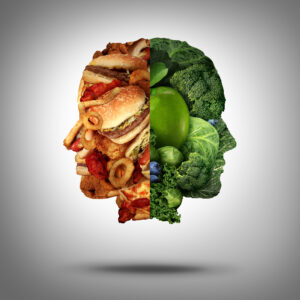
Avoid GMOs, refined sugars, processed foods, artificial sweeteners, and pesticides, all of which can destroy beneficial gut bacteria.7
- Reduce Sugar: Sugar is the enemy because sugar feeds the unfriendly bacteria and microbes in our gut. Yeast is commonly found in the digestive tract which is okay when it’s in balance but too much sugar can feed yeast and enable it to overgrow.

When unfriendly bacteria and yeast overgrow, they can be very damaging to the gut lining and produce toxins inside the body. These toxins can put pressure on the brain and lead to unhealthy levels of inflammation.
- Avoid unnecessary medications: Antibiotics can be lifesaving when fighting severe infections, but unfortunately, they kill off the good bacteria along with the bad. Other medications, including NSAIDs, laxatives like MiraLax, and antacids can also harm those probiotics. If you need medicine to get and stay well, by all means, take it, but whenever feasible look for natural alternatives.
- Supplement with a daily probiotic: A high-quality daily probiotic supports glowing health by supplying your gut with friendly bacteria and help your gut get the fuel it needs to thrive.
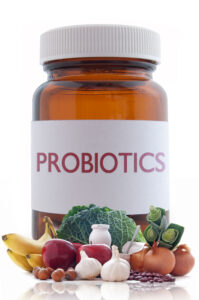
Now,
One of the easiest and most effective ways to repair the gut and fight inflammation is to simply take a probiotic on a daily basis.
Unfortunately, not all probiotics are created equal.
Here Are The Top 4 Things to Look for When Shopping for Probiotics…
1. Strain Diversity and Strength
- Most probiotics contain 3 strains and 5 billion CFU’s (Colony-Forming Units).
- Children with an unhealthy need a stronger and more diverse probiotic. Look for one with at least 10 strains and 10 billion CFU’s.
2. Look for a Probiotic that Contains a Strain known as “L Reuteri”.
- This is a vital ingredient for children with autism. In a recent study, researchers found that by feeding the probiotic Lactobacillus Reuteri to mice with autism-like behaviors, improved their sociability while increasing the number of oxytocin-producing neurons (a hormone associated with social behavior) in their brains.
- It also improved signs of brain plasticity – the brain’s ability to form new connections that foster learning.
3. Easy to Consume
- Most kids struggle to take high-quality probiotics because they mostly come in giant-sized pills or nasty powders. And unfortunately, the “children’s probiotics” are typically glorified gummy-bears that don’t work. So, we recommend finding a high quality probiotic with a flavorless powder.
4. Buy From Companies Who Believe in Their Products Enough To Offer At Least A 90-Day Money-Back Guarantee
- The companies who genuinely believe in the quality of their product and its effectiveness are not afraid to stand behind a powerful guarantee.
Where Would I Begin to Find Quality Probiotics For Kids?
Probiotics are sold everywhere.
But the ones sold in grocery stores and GNC’s generally lack the quality ingredients you’re looking for, and quite frankly, they don’t work very well. Especially for kids.
With that said, if you have a high-end Vitamin Boutique in your area – they may have something worth looking into on their shelves.
Or,
You can always look online.
My personal favorite is All-Star Nutrition’s Bio-Heal.
I’m admittedly biased when I say it’s the best probiotic for kids on the market.
But with over 500 5-star reviews, I think it’s safe to say a lot of people agree with me.
Click Here to Learn More About The 5-Star Probiotic For Kids
The Bottom Line
Gut health is the foundation of overall health and we have a tremendous opportunity to support long-term health in our children by supporting gut health through supplements and healthy food choices.
And by fortifying the ranks of your gut’s ‘good guys’ encourages a lifetime of vibrant health for mind, body, and spirit. After all, a balanced, nourished gut can help your child reach their full potential so they can enjoy their healthiest days yet!
*This website is provided for informational purposes only and is not intended as a substitute for the advice provided by a healthcare professional.
References
- Discover What the Medical Community Is Hiding From You
- A Parents Guide On How to Tell the Difference Between a Meltdown and a Tantrum
- Acne vulgaris, probiotics, and the gut-brain-skin axis. Europe PMC
- The Connection Between the Gut & The Brain
- Getting to the Root of Behavior Patterns
- Repair with “Real” Foods & Powerful Supplements
- Does Your Child Have a Healthy Gut? 7 Key Signs to Help You Find Out

Repair With “Real” Foods & Powerful Supplements (2R Protocol: Part 2)

Article At a Glance:
- The 2R Protocol Refers to 1) Removal (of certain foods and toxins) and 2) Repair (using supplements and foods to heal the gut).
- Supplements can be used to reduce inflammation, increase brain function, help the body detox, and improve overall health.
We’ve talked a lot about this lifestyle change of healthy living that can help our children’s bodies improve naturally and greatly reduce the symptoms of autism. It all centers around the microbiome, which is sort of the “engine” in the gut that drives the body and brain either to dysfunction or to healing.
There’s a lot to know and learn, and it can be a little overwhelming to take it all in. I understand that completely: it’s a change that doesn’t happen overnight. To make things a little less intimidating, it can be helpful to think of things in what I call the 2R Protocol System. To put it simply, this means that our two part system of healthy eating and living means to 1) remove, and 2) repair. For this article, we’ll continue on what we learned previously (about reducing or eliminating certain toxins from our children’s nutrition) and focus on what we can add to strengthen their immunity and help them to heal.
Foods
When it comes to food, organic, “real” food should be the goal. Similar to the paleo diet, we should be opting for foods free from pesticides and toxins, not the processed and packaged junk. The best choices are found on the outside aisles of the grocery stores (fresh produce, lean meats, etc). Also, we can’t be afraid of consuming healthy fats (like grassfed butter and coconut oil). In the 1980s, there was a low-fat health craze that unfortunately has in many ways persisted into our modern culture, but the truth is that our bodies need fat as fuel, and our children in particular need it for brain development.
Supplements (For A Healthy Gut)
In addition to food, the “repair” part of the 2R protocol has to do with what supplements we use. For children with compromised immunity, the priority is to heal the gut and reduce inflammation, and using a probiotic is a great way to accomplish that. A probiotic supplement adds in the beneficial bacteria strains, which helps to restore gut balance (I recommend “Garden of Life-Dr. Formulated Probiotic, Organic Kids” which you can find here).
The next step is to add in digestive enzymes to help break down the food so our children’s bodies can fully utilize all the nutrients and get what they need. All-Star Nutrition carries the supplement “TriEnza,” which helps with this tremendously.
After aiding in digestion, I suggest using the supplement “Restore” to heal the tight junctions in the gut and protect against harmful pesticides (such as glyphosate) and further assist in creating a healthy balance between good bacteria and bad bacteria.
The last supplement I suggest specifically for healing the gut and reducing inflammation is Entersolgel, which binds the toxins and the pathogens (such as the “die-off“) in the gut and allows them to be safely eliminated.
Supplements (For Overall Health)
There are also supplements that can be effective for your overall optimum health. To begin, I love the multi-vitamin “Potential,” as it’s the first of its kind to ever receive a patent to improve learning, academic performance, and behavioral functioning. Studies show that children who use it show vast improvement in school performance; it’s powerful stuff!
As mentioned when we talked up foods, kids need healthy fats to help reduce inflammation and assist in brain development. We carry a product called SFH Super Omega 3 Fish Oil that supports stronger immunity, heart health, and even improved mental health.
We’ve written before about the amazing health benefits associated with broccoli (which contains the enyzme sulforophane) that are particularly relevant for children with autism. Increased levels of sulfophorane has been shown to lead to improved social behavior and better verbal communication. Enduracell BioActive capsules are a way for your child to reap these benefits without you having to bribe them to eat a lot of broccoli.
And finally, Organifi Green Juice has 12 super food ingredients and is a great way to get healthy greens into our children’s diets.
References
Remove These 4 Unhealthy Foods To Heal the Gut (2R Protocol System: Part 1)
Four Myths That Are Affecting Your Child’s Health
New Research Shows the Power of Broccoli
What You Need To Know About the Herx Reaction
9 Reasons To Take “Potential”:Nova Nutrients
*This website is provided for informational purposes only and is not intended as a substitute for the advice provided by a healthcare professional.

Probiotic Not Doing Its Job? Here’s Why.
Article At A Glance:
•Probiotics can be a powerful supplement to improve gut health
•If your probiotic doesn’t seem to be effective, check expiration dates and delivery mechanisms, then consider readjusting your routine and your expectations

In the world of health and wellness, probiotics are a trending topic. These supplements of live microorganisms are intended to improve gut health by helping to balance out the “good” bacteria and reducing inflammation. Some even claim that probiotics can help with skin clarity, hair growth, better sleep, and reduced stress.
But what if you’ve been taking a probiotic for a while and it doesn’t seem to be delivering the same benefits? Or what if a probiotic supplement never seemed to really work for you much in the first place?
Dead Strains
The truth is that there a number of factors that can determine how effective a probiotic is for you. To start with, it’s possible that some of the live strains have died off, rendering it less powerful. Some probiotics require refridgeration, and others may even have the number of live strains as part of the label. Check the shelf life of these supplements to see that they’re not expired.
Stomach Acid
Another reason that your probiotic may be less effective is that it doesn’t make it to your digestive tract. It’s estimated that 96% of probiotics are killed off by the acidic lining of the stomach, meaning that they can’t do their job. Opt for a supplement with a slow-release mechanism for best results.
Human Error
Sometimes it’s easy to assume a probiotic isn’t really working when it’s actually a lack of routine that is causing it to be less effective. To experience desired results, you need to take the supplement on a daily basis for at least a few weeks. Set an alarm or put it on your checklist to hold yourself accountable so that you don’t accidentally miss days.
No Magic Fix
Probiotics can be a great way to kickstart your health, but they alone cannot replace other habits (like nutritious foods, quality sleep, etc.). Sad to say, but if you are expecting immediate and astonishingly good results, you’re bound to be disappointed. Natural supplements work best in tandem with other healthy habits, but they take time to work and will not magically fix any health ailment you may have.
*This website is provided for informational purposes only and is not intended as a substitute for the advice provided by a healthcare professional.
References
5 Reasons Your Probiotics Aren’t Working (and What To Do About It)
